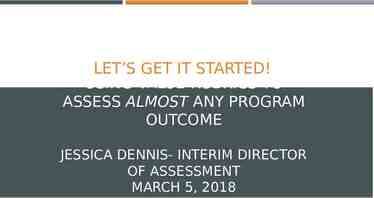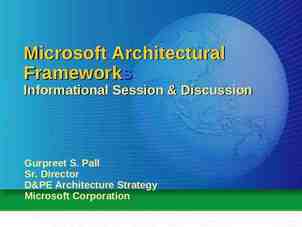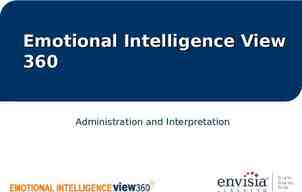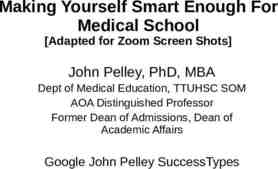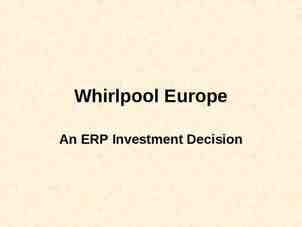Research on Metadata in Digital Repositories Dr. Oksana L.
27 Slides3.98 MB

Research on Metadata in Digital Repositories Dr. Oksana L. Zavalina, Information Science Research Brown Bag presentation November 10, 2021

Outline Introduction change, etc. to metadata in digital repositories: quality, UNT research team and publications on metadata change 2018-2020 LangArc TEL IMLS-funded project & resulting publications international workshops journal special issue on digital language archives Future steps, Questions and Answers 2

Metadata is Essential for Providing Access to Information (and Data) Without it: humans would not be able to effectively find, identify, select and obtain information and data they need in everyday life, professional and scholarly activities, etc. ; explore relations between information/data objects machines would not be able to assist humans in information/data seeking or to make inferences and connect pieces of information and data in a meaningful whole (e.g., Semantic Web) 3

Metadata: main components 1. Data content standards that guide creation of metadata records for various user communities 2. Data value standards that provide guidelines and controlled vocabularies for consistent representation of information in metadata elements and enable collocation and disambiguation of results. 3. Metadata records adequately representing important to users attributes of information objects (e.g., journal articles resulting from a research project) and data (e.g., datasets used in that research project): e.g., audience; creator, contributor, publisher; date; format; title; type; topical, geographical and temporal subjects, and many more. 4. Metadata Schemes and Data encoding / transmission standards that enable structuring, sharing, exchanging and reusing metadata 4

Metadata record example 5

Same record example: another view 6

Digital Repository A collection of online resources: content is deposited (by the content creator, owner or third party) offers a minimum set of basic services (put, get, search, access control) is sustainable and trusted, well-supported and well-managed the repository architecture manages content & metadata (Denison, 2007) Two primary types of digital repositories: institutional (collections of institution specific resources, e.g., UNT Scholarly Works) subject/disciplinary (e.g., PubMed Central; arXiv; The Archive of the Indigenous Languages of Latin America) 2021 Dr. Oksana L. 7

Quality of Metadata is Important Metadata fitness for the purpose of enabling data/information discovery and reuse through supporting user tasks: 2021 Dr. Oksana L. 8 8

Metadata quality criteria suggested by the literature Access Accuracy Availability Economy Flexibility Compactness Fitness For Use Compatibility Informativeness Completeness Protocols Comprehensiveness Content Consistency Cost Data Structure Ease Of Creation Most important from the point of view of metadata creators (e.g., Park & Tosaka, 2009) 2021 Dr. Oksana L. Ease Of Use Quantity Reliability Standard Timeliness Transfer Usability 9

Evaluations of Metadata Quality in Repositories Formative: in the process of designing, developing, prototyping Summative: after implementation Both serve to help decision makers in: Determining if metadata creation and/or management should be continued as is, OR fundamentally or moderately revised (and specifically where and how) Allocating resources Planning for new or revised services 2021 Dr. Oksana L. 10

Metadata change Change in metadata records is encouraged by agencies that facilitate cooperative metadata creation, management and sharing To keep up with “environmental” changes, e.g.: Growth in certain types/formats and subject matter of materials in repositories Changes in the content & location of fluid materials (e.g., websites) Goals of hosting & contributing institutions KOS: classification systems & controlled vocabularies National & international standards for metadata creation. 2021 Dr. Oksana L. 11

Change research in computer science: does NOT look into metadata Mechanisms for identifying change (e.g., edit distance, Bille, 2005) and file comparison tools for isolating differences between: files texts, strings programs, scripts, applications, ontologies multiple versions of the same entities. (e.g., Cheney, 2010; Horwitz, 1990; Noy et al., 2004) 2021 Dr. Oksana L. 12

Change research in information science BUT Metadata quality research: suggested the link between metadata change and metadata quality emphasized the need to measure the metadata change and its outcomes for the users (Stvilia et al., 2004; Stvilia & Gasser, 2008) 2021 Dr. Oksana L. Little published research identifying and measuring metadata change until recently UNT team is pioneering metadata change research. 13

UNT researchers contributing to metadata change research since 2014 Dr. Daniel Alemneh Started contributing as students of IS PhD program Dr. Priya Kizhakkethil Dr. Mark Phillips Dr. Shawne Miksa Hannah Tarver Dr. Shadi Shakeri Dr. Slava Zavalin Dr. Oksana Zavalina 2021 Dr. Oksana L. 14

UNT researchers’ published contributions to metadata change research 1. Tarver, H. Zavalina, O.L., Phillips, M., Alemneh, D., & Shakeri, S. (2014). How descriptive metadata changes in the UNT Libraries’ Collections: a case study. Proceedings of the International Conference and Workshop on Dublin Core and Metadata Applications, Austin, Texas. 2. Zavalina, O.L., Kizhakkethil, P., Alemneh, D., Phillips, M., & Tarver, H.S. (2014). Metadata changes: meeting the evolving requirements. Proceedings of the 10th International Conference on Knowledge Management 3. Zavalina, O.L., & Kizhakkethil, P. (2015). Exploration of metadata change in a digital repository. Proceedings of the iConference 2015. 4. Zavalina, O.L., Kizhakkethil, P., Alemneh, D., Phillips, M., & Tarver, H.S. (2015). Building a framework of metadata change to support knowledge management. Journal of Information and Knowledge Management, 14 (1), 1-16. 5. Zavalina, O.L., Shakeri, S., & Kizhakkethil, P. (2015). Metadata change in traditional library collections and digital repositories: Exploratory comparative analysis. Proceedings of the Association for Information Science and Technology. 6. Zavalina, O.L., Shakeri, S., & Kizhakkethil, P. (2016). An empirical investigation of change in subject metadata in WorldCat. Proceedings of the International Federation of Library Associations World Library and Information Congress Satellite Conference "Subject Access: Unlimited Opportunities”. 2021 Dr. Oksana L. 15

UNT researchers’ published contributions to metadata change research: continued 7. Zavalina, O.L., Zavalin, V., & Miksa, S. D. (2016). Quality over time: A longitudinal quantitative analysis of metadata change in RDA-based MARC Bibliographic Records Representing Video Resources. Proceedings of the Association for Information Science and Technology 8. Zavalina, O.L., Zavalin, V., Shakeri, S., & Kizhakkethil, P. (2016). Developing an empiricallybased framework of metadata change and exploring relation between metadata change and metadata quality in MARC library metadata. Procedia Computer Science, 99, 50-63. 9. Zavalina, O.L., Phillips, M., & Tarver, H. (2017). Quality assurance and evaluation of change for patent metadata. Proceedings of the Association for Information Science and Technology. 10. Zavalina, O.L., Shakeri, S., Kizhakkethil, P., & Phillips, M.E. (2018). Uncovering hidden insights for information management: Examination and modelling of change in digital collection metadata. In Lecture Notes in Computer Science. New York: Springer. 11. Zavalina, O., L., & Zavalin, V. (2018). Evaluation of metadata change in authority data over time: An effect of a standard evolution. Proceedings of the Association for Information Science and Technology. 12. Zavalin, V., Zavalina. O.L., & Safa, R. (2021). Patterns of subject metadata change in MARC21 bibliographic records representing video recordings. Proceedings of the Association for Information Science and Technology 2021 Dr. Oksana L. 16

IMLS-funded project (2018-2020) researched information organization (including metadata) in digital language archives Dr. Shobhana L. Chelliah (UNT Linguistics) Dr. Mark E. Phillips Mary Burke (UNT IS PhD student in Linguistics concentration program) Dr. Oksana L. Zavalina 17

LG-87-18-0197 Exploring Methods and Techniques for Facilitating Access to Digital Language Archives Project to identify the gaps between the information organization methods and techniques currently offered in existing language data archives and the needs of actual and potential language data archive users. Provides necessary background information for project(s) aiming to extend the usefulness of existing language data archive collections through a user-centered design of systems incorporating the efficient methods and 2021 Dr. Oksana L. techniques for providing digital access to 18

LG-87-18-0197 Publications: STUDENT FIRST AUTHOR 1.Burke, M., & Zavalina, O. L. (2019). Exploration of information organization in language archives. Proceedings of the Association for Information Science and Technology, 56(1), 364-367. https://doi.org/10.1002/pra2.30 2.Burke, M., & Zavalina, O.L. (2020). Descriptive richness of free-text metadata: a comparative analysis of three language archives. Proceedings of the Association for Information Science and Technology, 57(1), e429. https://doi.org/10.1002/pra2.429 3.Burke, M., & Zavalina, O.L. (2020). Identifying challenges for information organization in language archives. iConference 2020: Sustainable Digital Communities, pp.622-629. https://doi.org/10.1007/978-3-030-43687-2 52 4.Burke, M., Zavalina, O.L., Phillips, M., & Chelliah, C. (2021). Organization of knowledge and information in digital archives of language materials. Journal of Library Metadata, 21(2), 185-217. https://doi.org/10.1080/19386389.2020.1908651 5.Burke, M., Zavalina, O.L, Chelliah, S.L., & Phillips, M.E. (2021, in press). Language 2021 Dr. Oksana archive user needs: Findings from interviews with language archive managers, L. 19

Metadata-related research is published in: journals, e.g.: Journal of Library Metadata https://www.tandfonline.com/toc/wjlm20 /current Cataloging and Classification Quarterly The Electronic Library journal https://www.tandfonline.com/toc/wccq20 /current International Journal of Metadata, Semantics, and Ontologies Journal on Information and Knowledge Management Library Resources and Technical Services 2021 Dr. Oksana L. Journal of the Association for https://www.inderscience.com/jhome.ph p?jcode ijmso https://www.emerald.com/insight/publica tion/issn/0264-0473 https://www.worldscientific.com/worldsci net/jikm https://www.ala.org/alcts/resources/lrts 20 https://asistdl.onlinelibrary.wiley.com/jou 20

Metadata-related research is published in: conference proceedings, e.g.: Dublin Core Metadata Initiative (DCMI) annual conference International Conference on Knowledge Management: CFP open until Nov. 30, 2021 ACM/IEEE Joint Conference on Digital Libraries (JCDL) Also, its European equivalent (ECDL or TPDL), Asian equivalent (ICADL) iSchools annual conference 2021 Dr. Oksana L. (iConference) https://dublincore.org/confer ences/ http://www.ickm.net/ https://www.jcdl.org/ http://www.tpdl.eu/ https://link.springer.com/con ference/icadl https://ischools.org/iConfere 21 nce 21

LangArc international workshop Covers a variety of topics related to a special kind of digital repository: a digital language archive 1st workshop organized as part of JCDL 2021 conference and hosted by UNT COI online 09/30/2021 Intended to continue annually Publishes proceedings, 2021with Dr. Oksana L. 22

LangArc 2021 proceedings Open access in 2 digital repositories: UNT Digital Library: https://digital.library.unt.edu/explore/collections/LANGA RC/ IDEALS: https://www.ideals.illinois.edu/handle/2142/110998 2021 Dr. Oksana L. 23

The Electronic Library journal special issue on digital language archives (DLA) https://www.emeraldgrouppublishing.com/calls-for-papers/d igital-language-archives Submissions accepted until January 15, 2022 Some possible topics include: societal/political/legislative/economic factors affecting DLA; administrative structures and partnerships of DLA; collection development in DLA; information architecture, organization (including metadata), and retrieval in DLA; quality assurance in DLA; usability and user experiences in DLA; theory and history of DLA; evaluations (case studies and comparative analyses) of DLA 2021 Dr. Oksana L. to support DLA development education initiatives 24

INTERESTED IN METADATA RESEARCH? Please send me an email and/or set up a meeting with me. I will be happy to address ANY of your questions about: Research problems/questions Collecting new or using existing data Ways of analyzing data etc. 2021 Dr. Oksana L. [email protected] 25

INTERESTED IN METADATA RESEARCH BUT LACK METADATA BACKGROUND? No problem! Complete these UNT graduate courses: INFO 5223 Metadata 1 INFO 5210 Cataloging & Classification 1 INFO 5740 Digital Libraries Also, might benefit from: INFO 5224 Metadata 2 INFO 5220 Cataloging & Classification 2 INFO 5212 Dewey Decimal Classification etc.L. 2021 Dr. Oksana 26

Questions & Answers 2021 Dr. Oksana L. 27

